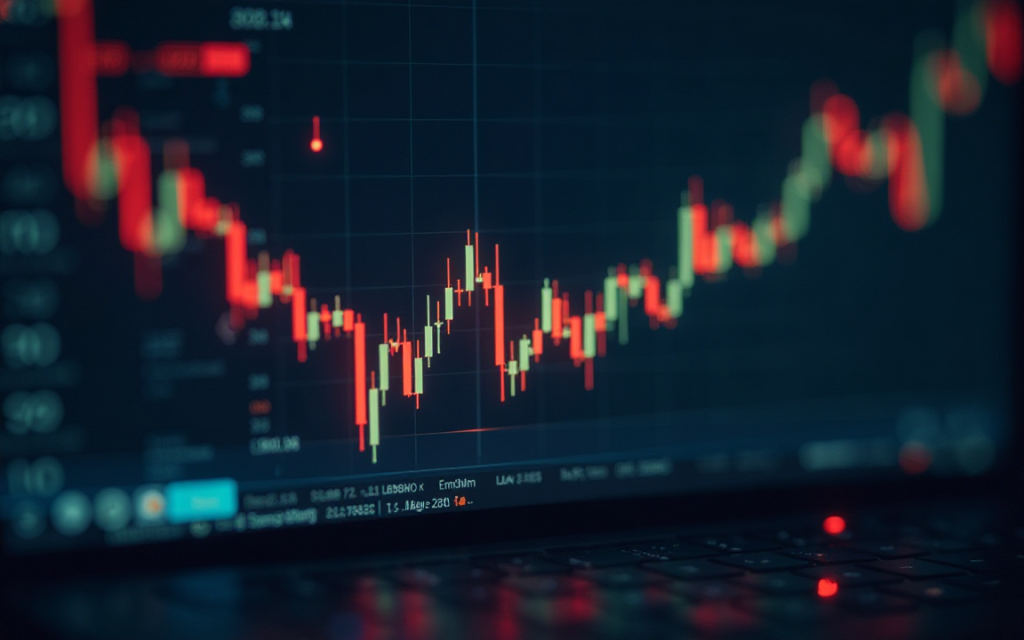On Thursday, Oracle shares fell nearly 5% after a previously relentless rally that had taken the enterprise software maker to the cusp of a $1 trillion market valuation.
This pull-back comes after Oracle’s shares soared by 35.9% in the session on Wednesday, leaving a historic $933 billion market cap peak before reversing to around $890 billion if the losses are sustained.
This puts Oracle alongside some of this year’s swiftest rises in the S&P 500 index, outpacing advances by the “Magnificent 7” tech titans, before the retreat.
Investor excitement over multi-billion-dollar cloud contracts and soaring demand for computing power in the fight for AI supremacy have fueled the rally.
Ellison approaches wealth milestone
The market rise has also brought attention to Oracle co-founder Larry Ellison’s growing fortune. His net worth, estimated at $387.6 billion based on his 41% stake in Oracle, has risen in tandem with the company’s stock price.
The rise puts him within striking reach of Tesla CEO Elon Musk, who is still the world’s richest person, with an estimated $437.5 billion, in the Forbes ranking.
Ellison’s quick rise demonstrates how strongly individuals’ wealth is linked to the AI growth.
As investors pour billions of dollars into cloud and computing infrastructure, Ellison has emerged as one of the most significant benefactors of this money inflow.
Cloud deals drive momentum
One of the main driving forces behind the rally in Oracle’s share is its increasing presence in the cloud space.
OpenAI, this week, agreed to one of the largest computing power contracts in history, worth $300 billion over the next several years, with Oracle, The Wall Street Journal reported Wednesday.
This will most probably comprise a large portion of the new revenue Oracle guided for when it reported its earnings earlier this week.
Such agreements underscore the tremendous dollars being committed by companies focused on artificial intelligence as they race to cement capacity and scale it.
Once the premier purveyor of database software, Oracle has become an essential supplier in this competition, going head-to-head against the likes of Amazon and Microsoft for cloud infrastructure.
Investor sentiment and valuations
Despite Thursday’s dip, economists believe investor enthusiasm remains high.
Dennis Dick, chief strategist at Stock Trader Network, termed the retreat as “a bit of buyer exhaustion,” predicting that “the ‘buy the dip’ crowd is likely to re-emerge.”
He went on to say that Oracle’s guidance was so strong that it was “hard to think that this story is over.”
Oracle shares at $312.44 trade about 9% below the median analyst price target of $342, LSEG data show.
Still, the stock adopts a premium over cloud peers at 45.3 times forward price-to-earnings, compared with 31.3 for both Amazon and Microsoft.
The valuation reflects the expectation in the market that Oracle will maintain a large portion of the monetisation edges in containing such AI-driven cloud deals.
But the premium also presents a question on how high up the stock can run when it won’t have the big, long-awaited numbers as a reality check.
AI boom reshapes market leaders
Oracle’s meteoric rise exemplifies how artificial intelligence is transforming the global IT industry. Just a few months ago, Oracle’s market capitalisation trailed far behind that of Apple, Microsoft, and Alphabet.
Its valuation has nearly doubled this year, propelling it into the conversation as one of the market’s top performers.
The momentum also shows how Wall Street rewards companies that play critical roles in the AI ecosystem.
With OpenAI and other large competitors signing multibillion-dollar contracts, infrastructure providers such as Oracle are emerging as key enablers of the sector’s growth.
Outlook: cooling or consolidation?
The more pressing question for investors is whether Thursday’s pullback indicates a cooling-off period or just a break in Oracle’s rally.
Such a recent run-up leaves the stock susceptible to further volatility, but consistent demand for cloud services and capacity for AI likely continues to drive long-term momentum.
If Oracle lives up to promises and remains dominant in mega-deal wins, it may indeed also crack a $1 trillion market cap.
As Wells noted, for Ellison, this would not only secure Oracle’s standing in the AI age but also bring him closer to the pole position in the global wealth list ahead of Musk.
The post Oracle pullback follows record AI-fueled surge toward trillion-dollar valuation appeared first on Invezz



